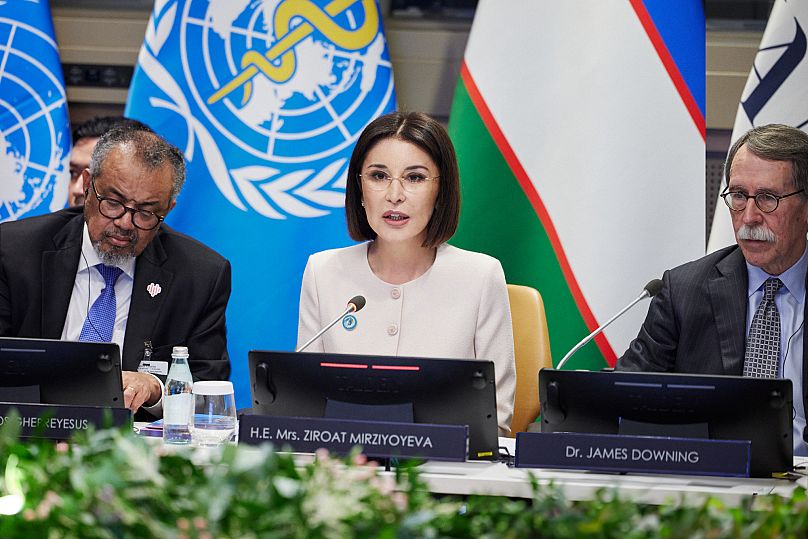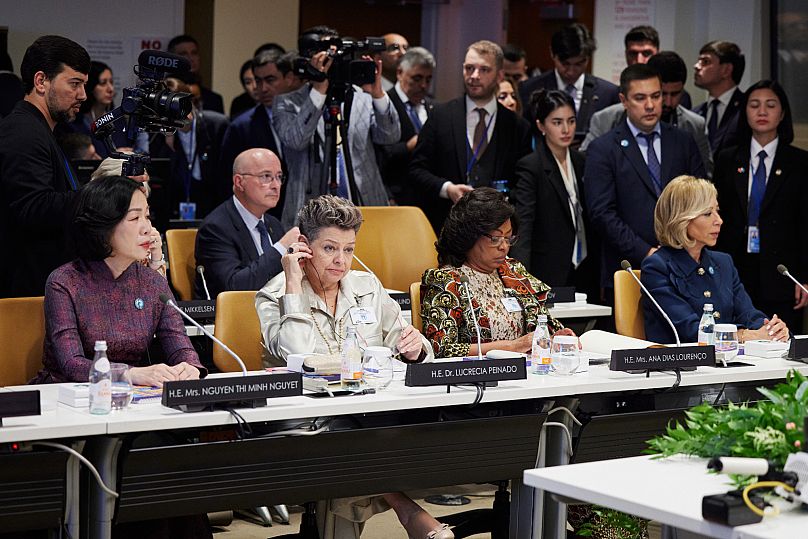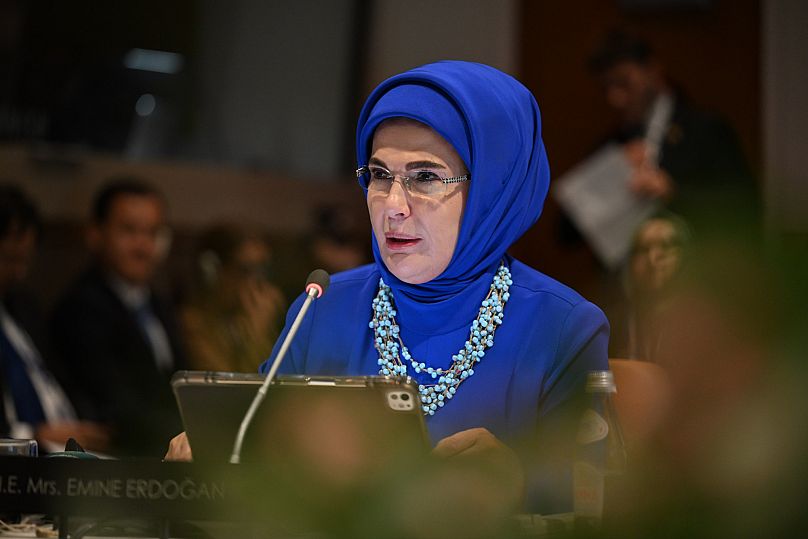First ladies from many countries and global health experts united on improving health systems, ensuring the urgent steps needed to prevent tragedy
The fight against childhood cancer was brought into the global spotlight on the sidelines of the United Nations General Assembly week in New York.
 ADVERTISEMENT
ADVERTISEMENT
 ADVERTISEMENT
ADVERTISEMENT
World leaders, first ladies, and global health experts pledged to raise childhood cancer survival rates worldwide to 60 per cent by 2030. The commitment centers on building stronger health systems, ensuring fairer access to treatment, and expanding international cooperation.
The international event called “A Global Movement to Improve Survival and Reduce Suffering for Children with Cancer and Other Catastrophic Diseases” was hosted by Uzbekistan, the World Health Organization, St. Jude Children’s Research Hospital, and the Zamin Foundation.
Uzbekistan’s First Lady Ziroat Mirziyoyeva, also chair of the Board of Trustees of the Zamin Foundation, stressed that more than two billion children worldwide are at risk or already suffer from non-communicable diseases.
"That is almost a third of the world's population. Millions of them are fighting cancer. Despite the achievements of modern medicine, survival rates remain uneven: in developed countries, they are above 80 per cent, while in developing countries, they are below 30 per cent. This is an unacceptable gap. We are obliged to take steps in order to prevent this tragedy", she noted.
A global platform for children’s survival
The New York gathering brought together first ladies from Turkiye, Azerbaijan, Angola, Vietnam, Guatemala and Serbia, as well as health ministers and representatives from more than 25 countries. Survivors also shared personal stories, including Samira Idrisova, a graduate of Uzbekistan’s Mehrli maktab school, who spoke about her journey with cancer.
Participants reaffirmed their commitment to raise global childhood cancer survival to 60 per cent by 2030, and discussed joint action on treatment access and initiatives against sickle cell disease.
WHO Director-General Dr Tedros Adhanom Ghebreyesus underlined that “every child suffering from cancer deserves an equal right to fight for their life, regardless of the country or community they come from.”
"That is why we launched the WHO Global Initiative for Childhood Cancer. The results speak for themselves: the program has helped more than 400 thousand children in 80 low- and middle-income countries”, he said.
Speaking at the event, St. Jude Children’s Research Hospital President James R. Downing stated: “To fulfil our promise that no child should die at the dawn of life, we are laying the foundations of the Global Sickle Cell Disease Initiative, aimed at improving survival rates among children with this condition. I call on every United Nations member state to join both global initiatives. This must become a priority for all countries”.
Expert voices: from early detection to strategy
Dilrorom Makhmudova, Scientific Secretary at Uzbekistan’s Center of Pediatric Oncology, Haematology and Immunology, explained to Euronews that early detection remains the most powerful tool.
“Laboratory diagnosis plays a leading role, because changes in the blood can appear a month before clinical symptoms. A simple blood test in any pediatric clinic can detect cancer early, and if treatment begins quickly, survivability can reach up to 100%”, she noted.
WHO’s Technical Officer for Cancer Control, Sharon Kapambwe, praised Uzbekistan’s national efforts.
“The adoption of a national strategy on childhood cancer, with clear goals, paths and resources, is a critical step for Uzbekistan. WHO remains committed to supporting the government, especially in building strong governance, improving coordination and the use of data to make the strategy work”, she told Euronews.
Uzbekistan's contribution to children's health
According to health experts, Uzbekistan is contributing to the global movement for children’s health.
In recent years, the country has implemented large-scale programs to reduce child cancer mortality, mobilised additional resources, introduced new standards for diagnosis and treatment, and expanded access to medicines.
Carlos Rodriguez-Galindo, Vice President of St. Jude Children’s Research Hospital, told Euronews: “We have witnessed lots of progress in Uzbekistan. Over the last several years, we have seen a clear acceleration with new resolutions, the creation of a centre of excellence, and plans to optimise care in the regions. From my point of view, Uzbekistan is a great example for other republics in the region and globally to follow.”
The country has adopted the National Strategy to Combat Childhood Cancer for 2025–2030, aligned with the WHO’s CureAll framework. The strategy envisions raising the early detection rate to 65 per cent, increasing one-year survival from 34% to 90%, five-year survival to 60%, and ensuring 100 per cent access to specialised multidisciplinary care.
"Survival rates for pediatric cancers increased from 37 per cent to 42 per cent, and for hematologic malignancies from 17% to 36.9% in just two years", Jamilya Polatova, Director of Scientific and Practical Medical Center of Pediatric Oncology, Haematology and Immunology, Republic of Uzbekistan, told Euronews.
Moreover, an International Academic Hub for Childhood Cancer has been established in Tashkent aimed at facilitating the integration of international standards in diagnostics, specialist training, and innovation, as well as the exchange of best practices and the development of modern clinical research.
Polatovai said is to expand free treatment for children and young people up to the age of 21.
"Equally important is the advancement of legislation on palliative care and the establishment of a comprehensive system of support for families in need. These efforts are complemented by centralised procurement, international cooperation, and sustained dialogue for the sake of children," she said.
Organisers stressed that the 60 per cent survival target is more than a number. It represents a global promise that no child, no matter where they are born, should be left without a fair chance to survive cancer.













